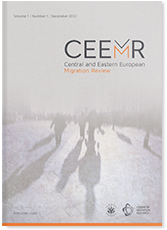The Effects of an EU Member-State’s Modified Citizenship Law: The Hungarian Example, With a Particular Focus on the Aspects of Free Movement
The Effects of an EU Member-State’s Modified Citizenship Law: The Hungarian Example, With a Particular Focus on the Aspects of Free Movement
Author(s): Ágnes TöttősSubject(s): Civil Law, International relations/trade, EU-Legislation, Sociology of Law
Published by: Ośrodek Badań nad Migracjami / Uniwersytet Warszawski
Keywords: dual citizenship; simplified naturalisation; ethnic Hungarians; loss of citizenship; free-movement rights;
Summary/Abstract: As the adoption of the Hungarian simplified naturalisation scheme raised much tension both in the neighbouring countries of Hungary and in the main host countries of EU citizens, this paper summarises the nature of such reactions and the most frequent fears that EU states expressed. The main aim of the study is to show what effects a country’s modification of its citizenship rules may have on the situations of other EU member-states and European Union citizens. The article also raises one practical aspect of the situation that evolved as a result of the answer by Slovakia to the Hungarian modifications – namely the ex lege withdrawal of Slovakian citizenship if a person acquires a new one from another country. It introduces in detail the free-movement aspects of ethnic Hungarians losing their Slovakian citizenship, while not leaving their homeland in Slovakia, arguing that people in such a situation may rightfully and immediately be eligible for permanent residence rights, which would provide them with a higher level of protection.
Journal: Central and Eastern European Migration Review
- Issue Year: 6/2017
- Issue No: 1
- Page Range: 65-74
- Page Count: 10
- Language: English

